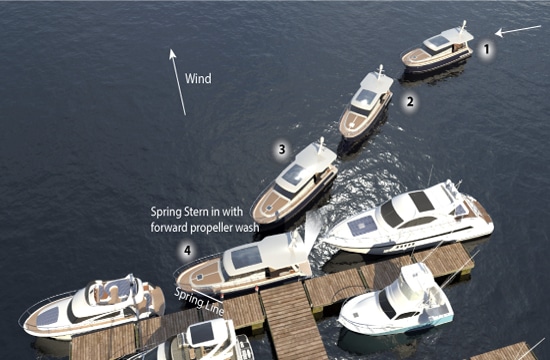Inboard Engine Diesel Engines
Thanks go to Mr. Rudolf Diesel who years ago in Germany cleverly invented an engine that today bears his name (luckily, they chose to use his last name)—the diesel engine. It is the ideal engine for a boat because of its high reliability, good torque, relatively inexpensiveness to operate, and low maintenance cost factors.
Diesel engines have mechanical similarities to gasoline engines except for the fuel they burn, called diesel fuel. This fuel requires high compression instead of a spark for ignition. However, this requires fuel injectors and a heavier engine block to handle the higher compression.
Earlier diesel engines were large and heavy. Modern diesels are more compact, and some models are quite small by previous standards. Their output is expressed in traditional horsepower terms and comes in a wide range.
When using a diesel engine on a boat, you do not have to worry about distributors and spark plugs because there are none. Instead, you have highly reliable fuel injectors that seldom require maintenance.
Since diesel fuel is less flammable than gasoline, it is much safer to store it in a closed fuel tank on board.
Reliability and efficiency are the hallmarks of diesel engines. If you keep diesel fuel clean, a diesel engine will run for up to 5,000 hours before any major overhaul is required.
Here is a tour of a diesel engine from various angles and some important parts that you need to know. Click the > arrow button to spin the engine to another viewpoint. Pay particular notice to the Raw Water Pump. This houses the water Impeller which is an important part of the cooling system and often needs maintenance.



